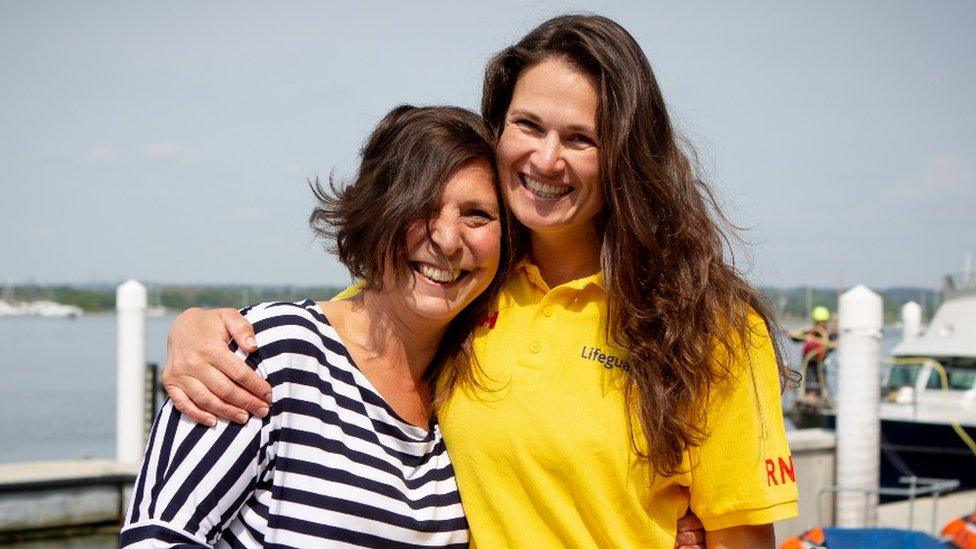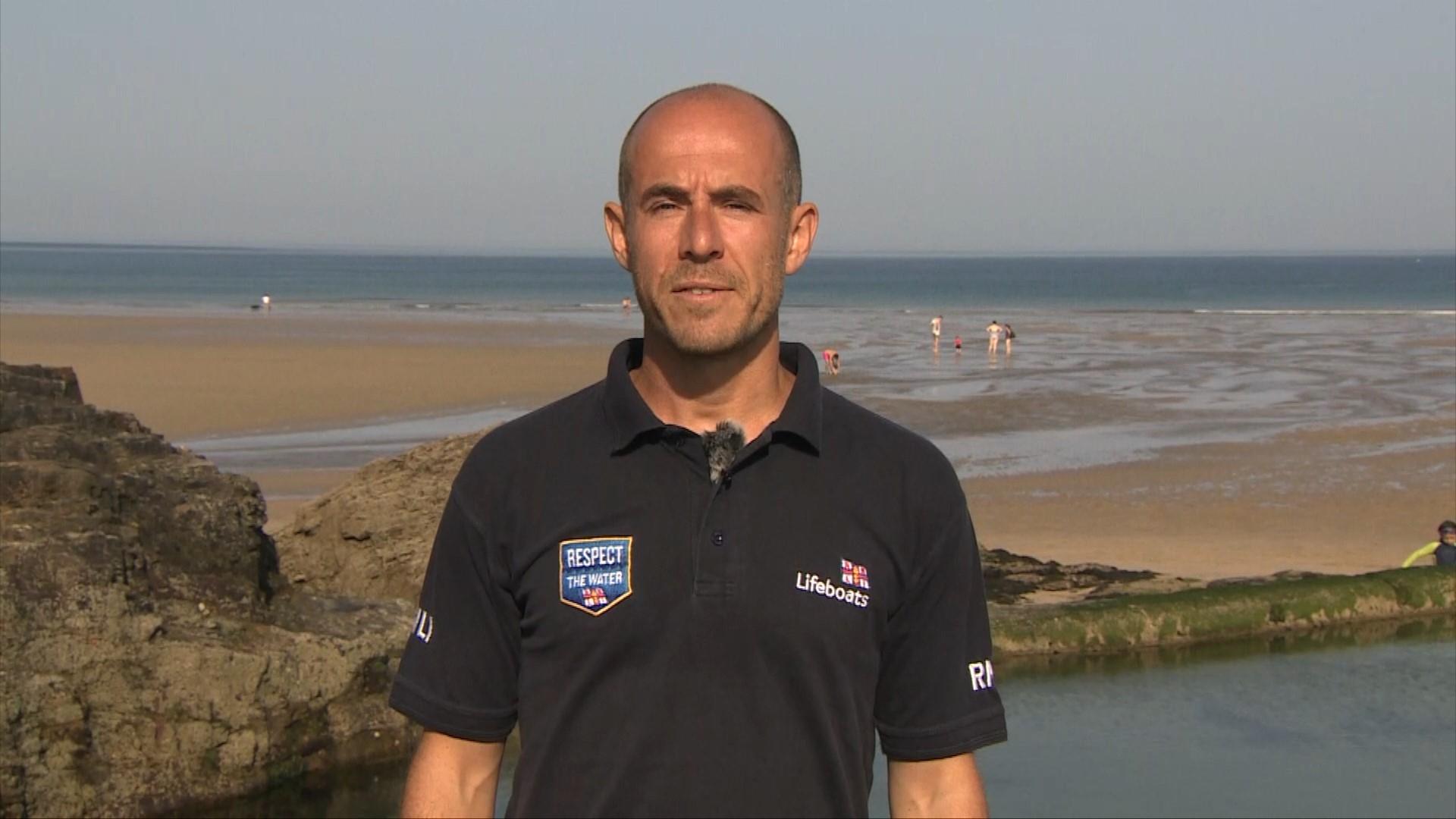Scarborough: Stricken swimmer thanks RNLI crew who rescued him
- Published

Michael Whiteley (right) was saved by a team of RNLI volunteers, including coxswain Lee Marton (left)
A swimmer who got into trouble in the water has said the RNLI's 'float to live' advice saved him from what he described as a "life or death moment".
Michael Whiteley, 65, said he was unable to reach the shore after strong currents dragged him out to sea off the coast of Scarborough on 8 January.
He said when he realised he needed help he got into the recommended starfish position and tried to stay calm.
Praising his RNLI rescuers, he said he was "so full of appreciation".
Speaking to the BBC, Mr Whiteley said he had been swimming with a friend when he got into trouble and while his friend was able to get back to land to raise the alarm he could not.
"I remember thinking how this could be a life or death moment," he said.
"You don't last very long in the sea, so I knew I was either going to have to make it out myself or the RNLI were going to have to come rescue me.
"I tried to get out and swim front crawl, but just wasn't making any progress, and that's when I got into the starfish position - also known as the float to live position - and just kept calm and waited for help."
He said he kept thinking about his wife, Lol, and their two dogs while he waited.
If you are struggling at sea the RNLI said you should float to survive
Lee Marton, Scarborough RNLI Lifeboat coxswain, said when the team reached Mr Whiteley he was "extremely cold and really struggling". "Thankfully his friend had a means of calling for help and raised the alarm, which ultimately saved his life - along with putting into practice our Float to Live advice," he said.
Nick Ayers, RNLI Regional Water Safety Lead, also praised Mr Whiteley for making the quick decision to float on his back as it "saved his life that day".
"Our advice is to always swim with others, be aware of the tides and changing currents and have a means of calling for help," he said.
"If you find yourself in difficulty in the water, float on your back, ears submerged and try to relax and breathe normally, gently moving your hands to stay afloat if you need to."

Follow BBC Yorkshire on Facebook, external, X (formerly Twitter), external and Instagram, external. Send your story ideas to yorkslincs.news@bbc.co.uk, external.
Related topics
- Published24 May 2023

- Published21 July 2021

- Published7 August 2020
